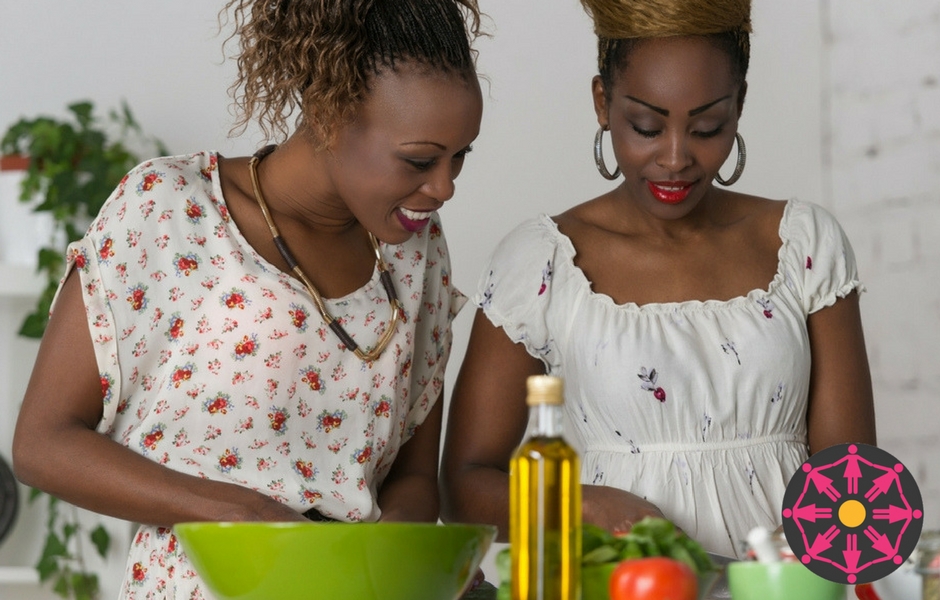Shani is from Nairobi, Kenya. She moved to Dundee in 1995 with her parents, brother and sister, Dalila, who has multiple physical disabilities. Her parents both later returned to Kenya, leaving Shani as Dalila’s main carer.
Dalila has been coming to the Centre for many years, having been referred by her social worker. She is an enthusiastic learner in the art class. She made friends within the group and got to know a lot of the staff, gaining confidence as time went on. Shani started coming to an employability course but always seemed less willing to talk.
A chance to tell their story
Then DIWC started Chit Chat, a new, informal group for women to get together and talk. The staff facilitator said:
“I had seen Shani and Dalila around the Centre before, we would say hello in passing. I noticed that Dalila always seemed happy and ready to chat, but Shani looked sad and quiet. She usually looked down, didn’t make eye contact and only spoke when I spoke first. When both sisters signed up for Chit Chat, I was really happy.
We had a hot drink and a slice of cake and I asked the group to introduce themselves and tell us whether they felt that DIWC was giving them what they need. One learner said ‘yes, definitely’, while the sisters both stayed quiet, looking at each other. I noticed their body language looked very agitated.
I reassured them that if there is anything at all they wanted to discuss, whether in the group or one-to-one, I was happy to take the time to listen and would do my best to support them. They said they’d just like to talk and the other learner there was happy with that, so they told their story.”
The sisters started to talk about the challenges they faced throughout their lives. Shani said that growing up in Kenya had been incredibly tough because they were poor and attitudes towards Dalila’s disabilities were very negative. Their mother had to fight hard to get her what treatment and help she could.
Finding inner strength
Then their Dad moved to UK to see if there were better job prospects, bringing his family to Dundee in July 1995. At school, they faced barriers because of their race, culture, clothing and difficulty speaking English. Shani and Dalila found it hard to fit in the community.
The challenges were intense, we didn’t have any friends or family in Dundee, so there was no support.
Tragedy struck in 2015, when their mother became ill and passed away and then, at the beginning of 2017, their father died too. This left the family in tatters, with the three siblings left to manage together. Because they were all over 18, they were classed as adult and independent.
Shani and Dalila had to grow up quickly and learn to deal with the outside world. While Dalila got quite a lot of support through social services because of her disabilities, Shani never asked for help.
Shani had always looked out for her sister and brother, taking responsibility for caring which means that she ignored her own emotional needs. Once she expressed this, the staff member asked if she would like to find out about the help available to her. A bit of research found the Penumbra Dundee Carer Centre and contact was made.
Creating hope for the future
Now DIWC and Penumbra are working in partnership to support the sisters to build a social and support network. Shani and Dalila both come along to Chit Chat and other classes at DIWC, and Penumbra offer to keep Dalila company while Shani takes time out for herself to go to the gym and study for the childcare qualification which she has started at the Centre. She says:
I needed help. Nobody had ever asked about me before.
Names in this story have been changed to protect the people’s identity.


Leave a Reply